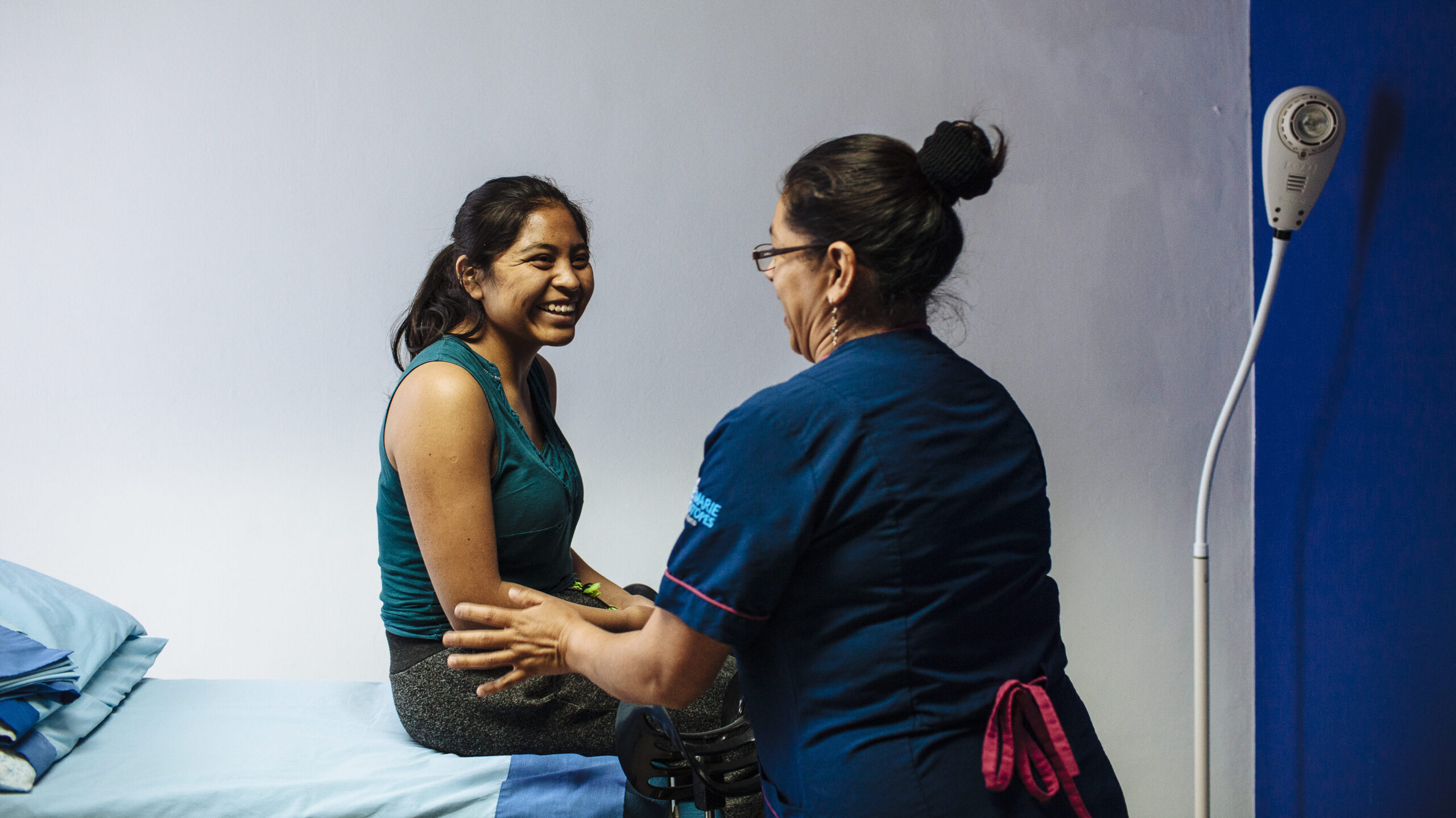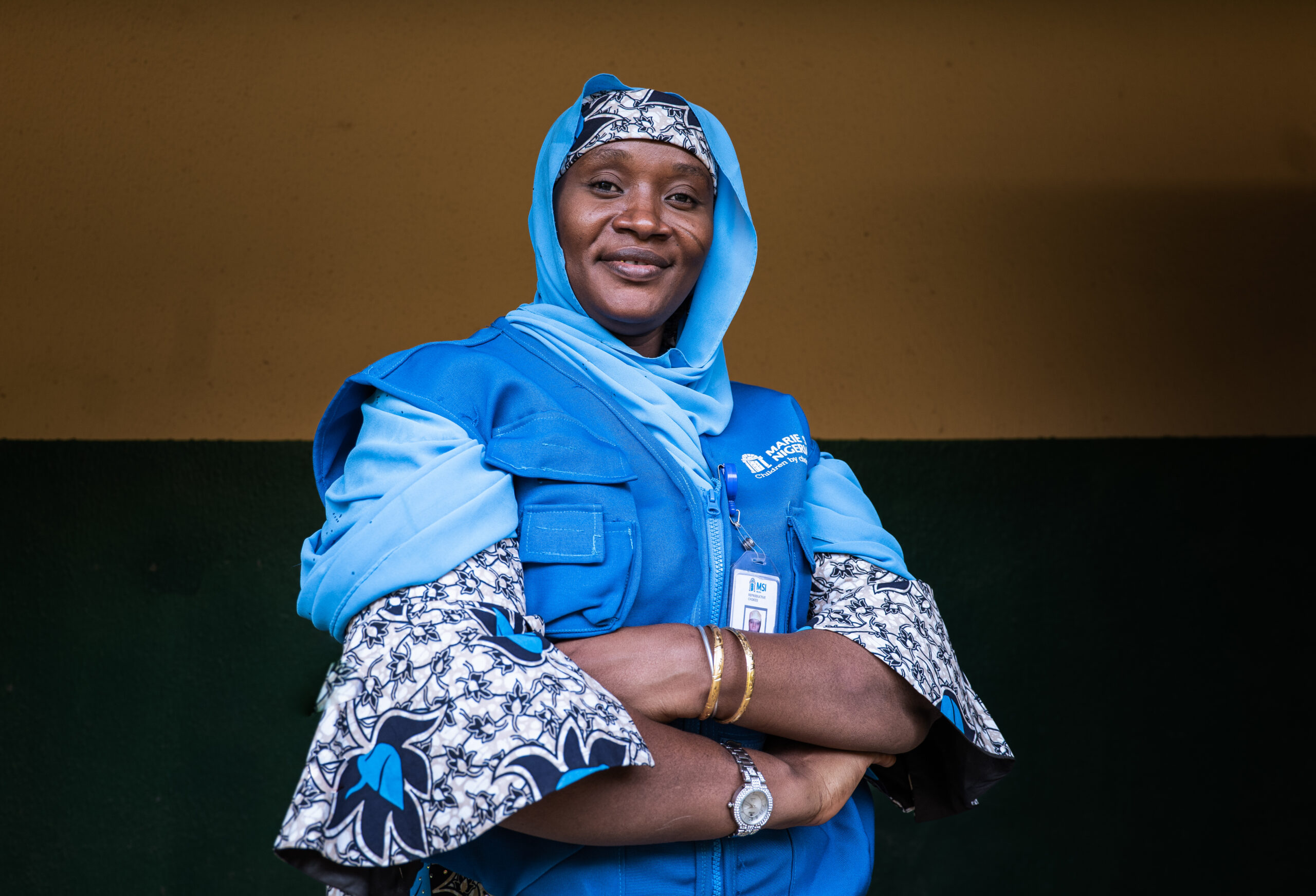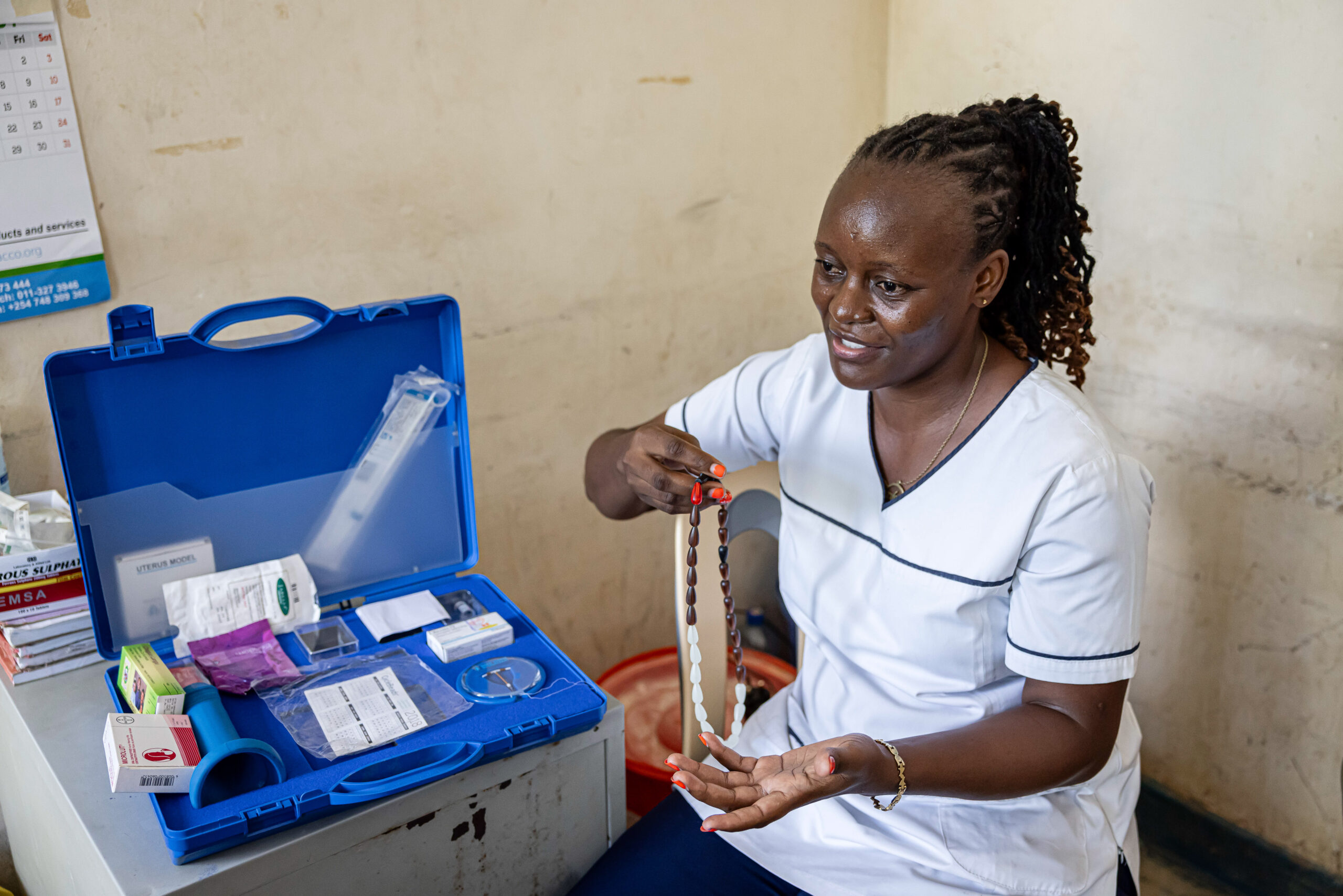
On Tuesday 25 July, MSI was delighted to be joined by partners for a lively webinar on how we can strengthen sexual and reproductive health outcomes through private sector engagement.
MSI Reproductive Choices and Pathfinder International (FHM Engage co-technical lead) shared emerging models and frameworks for private provider engagement. The discussion drew on the successes and lessons of social franchising, sharing new ways to strengthen the critical role that private providers play in ensuring a mixed health system is optimised and able to expand sustainable access to sexual and reproductive healthcare (SRH) services.
Below, read the main messages shared by our presenters and panellists, and watch back the recording. Slides are available to download here.
Anna Mackay from MSI Reproductive Choices set the scene on why the private sector is so important within health systems:
- Universal Health Coverage (UHC) cannot be achieved without the private sector, and private sector engagement is key to partnerships that improve health outcomes. This includes SRH services. Governments are increasingly seeing the private sector as integral to UHC within their health system, private providers want representation and support in meeting empanelment, quality and regulatory requirements, and clients want access to high-quality SRH choice.
- For the last decade, social franchising was the dominant service delivery model for private sector engagement for SRH, increasing access to — and quality assuring — franchised services offered by private providers. Through this model, MSI supported private providers at the core of the market, and were able to increase SRH access and quality service choice quickly.
- Over the last five years, MSI has evolved the model to integrate with government systems, including working together on data sharing and the integration of private sector facilities into national health insurance schemes. Responding to the limitations of the classic social franchising approach, including sustainability, process quality and scalability, MSI is putting market systems integration at the heart of our approach.
- By looking at the wider market constraints, MSI has been able to identify where it is best placed to add value and sustainable impact to the private sector in expanding access to SRH services. MSI is now able to identify its evolving models based on two factors: 1) the supporting functions of the market where they can add value; and 2) mapping this model onto a conceptual framework developed in partnership with Impact for Health International to consider potential trade-offs in scale, sustainability, equity and quality.
Fred Nsubuga from MSI Uganda explained the evolution of their private sector engagement strategy as they veer away from the social franchise model — using their rich experience of over 13 years of close engagement with private providers, as well as a market systems approach. In doing so, they can address the specific market constraints of their health system.
Xaher Gul from Pathfinder International shared a new conceptual approach developed by the USAID FHM Engage project to guide future thinking on opportunities offered by private sector networks:
- A Market Actor Ecosystem Map for Private Sector Aggregation identifies the different types of private provider aggregators and informs a framework for describing different types of aggregation models. First Generation Aggregation Models are those where a single aggregator creates, supports, and manages the network, while second and third generation models are those that are managed by two, three or more aggregators.
- These higher order models are of interest as they offer future opportunities. Opportunity one strengthens core functions of supply and demand and relates to synergies between Social, Commercial and Core aggregators. Opportunity two looks at supporting functions and identifies synergies offered by stewardship and regulatory aggregators. Opportunity three, referred to as Total Market Aggregator Synergy, offers a vision for the future and comprising a co-designed aggregation approach that consists of three or more existing aggregators supporting different market functions based on mandate and expertise.
- Also included in this work is a roadmap for facilitating collaboration and dialogue between different market actors to co-design second and third generation aggregation models linked to these three opportunities. FHM Engage will advance this work through country applications of these frameworks.
The second half of the session was a rich panel discussion with participants providing their reflections on the frameworks presented, as well as their perspectives on the role of the private sector within mixed health systems:
Andrea Bare, Senior Private Sector Technical Advisor with the office of Population and Reproductive Health at USAID, reflected that “context is everything” and welcomed the frameworks and how they can help movement towards local, consumer centric models. Awareness of incentive structures across actors can help operationalise scale and efficiency through the private sector’s inclination to aggregate. She also highlighted the need to keep consumers at the centre, with a focus on youth and other key demographics.
Gabrielle Appleford, Consultant, Systems Governance Stewardship Unit at the World Health Organisation, provided three insightful observations on the content presented: transition — challenges and opportunities of donor-to-domestic financing of SRH services, keeping the client at the centre and ensuring that key populations are not left out; evolution — recognising complexity in health systems, this work will include a range of actors from a variety of sectors, and alignment — with the need to recognise the role of public and private sector governance within mixed systems.
Dr. Alemayehu Hunduma, Head of the RH, FP & Adolescent Health Desk, Ethiopia Ministry of Health, highlighted the rich opportunities of public private partnerships and strategies around RMNCH in Ethiopia. He highlighted the Government of Ethiopia’s inclusion of the private sector such as MSI Ethiopia, Federations and Associations and their important role in the provision of health services and improvement of data sharing as well as expanding access to youth and the most marginalised.
Nicole Spieker, Chief Executive Officer, PharmAccess Foundation, reflected that the sector has an important role to play in the provision of quality services, especially SRH and recognition of the movement into public financing and UHC, and the opportunities that will bring, noting the advancements made recently in Ghana. Partnerships with government means that access to quality services can be expanded where the clients need them the most.
Nirmala Ravishankar, Senior Fellow with ThinkWell, shared her reflections on service delivery networks and aggregation in the public sector and the opportunities for private sector experiences to inform approaches. She noted that the question around aggregation is an important one to understand under which conditions aggregation approaches meet health market needs, and where they may not. From a health financing perspective, she shared insights into domestic financing playing both a core and supporting function within the market to subsidise services for the poor.
Suggested further reading and resources from our panellists:
- USAID: Assessment Findings for Improving the Participation of Family Planning Private Sector Providers in Health Care Provider Networks in the Provinces of Antique and Guimaras, Philippines
- USAID: Webinar | Engaging for Impact: Strengthening Private Sector Participation in Public Purchasing for Increased Access to Family Planning in the Philippines
- WHO Country Connector – Strategy Report: Engaging the private health service delivery sector through governance in mixed health systems
- WHO Country Connector – Country Conversations
This is the second in a series of ‘In Conversation’ webinars. The next session is on contraceptive method choice. For more information, please contact [email protected]







